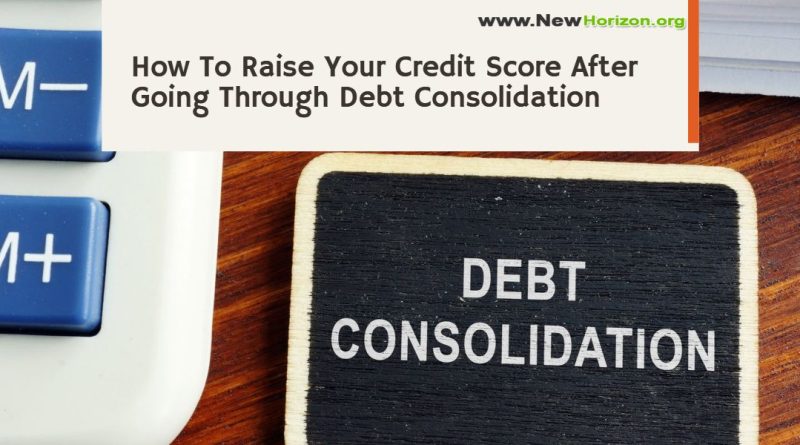How to Raise Your Credit Score After Debt Consolidation
Debt consolidation can be a great tool for getting your finances back on track. However, it can also have an impact on your credit score. When you consolidate your debts, it can cause your credit score to drop initially.
However, with some effort and time, you can raise your credit score after going through debt consolidation. In this blog post, we’ll explore some tips on how to do just that.
Rebuilding Your Credit After Obtaining A Debt Consolidation Loan
- Don’t close your consolidated accounts if you can help it. If you got a debt consolidation loan
 thru a company, they may have had you close the accounts you consolidated with them. If possible, you should ask them to leave the accounts open. You can tell them you are afraid of the impact of losing “pillar” accounts will have on your credit report. (A pillar account is one that adds age or the credit limit amount helps your overall credit score). If that’s not possible you may want to open a secured credit card.
thru a company, they may have had you close the accounts you consolidated with them. If possible, you should ask them to leave the accounts open. You can tell them you are afraid of the impact of losing “pillar” accounts will have on your credit report. (A pillar account is one that adds age or the credit limit amount helps your overall credit score). If that’s not possible you may want to open a secured credit card. - Choosing a secured credit card – you want to go with a secured credit card because not only are you building your credit but you are building a savings account. After 6 months to a year of on-time payments, that security deposit gets returned to you. You want to find a secured credit card that will allow you to add additional funds to your credit limit every few months. Most people when they are building credit start of with credit cards that give them limits of a few hundred dollars. You want to build your secured card to over $1000. The larger the amount the better. Once you start applying for unsecured credit cards your initial credit limits will be higher.
- Submit your payments on time. Keep in mind that you have an obligation to your debt consolidation lender to make your payments on time. In order to raise your score, you need to be consistent with timely submission. Don’t forget that payment history takes up the largest percentage (35%) in the FICO scoring system. If you have a history of bad credit, even a single late payment can significantly affect your final score.
- Get credit monitoring Credit utilization is one of the things credit monitoring services will monitor. They will send you an alert when your credit utilization starts to rise.
- Follow Your Budget Plan. To be successful in consolidating debts, you need to focus on the most important task at hand – completing your debt consolidation loan payments. Most debt consolidation companies have someone on staff that can help you create a budget. If not, here is an article I wrote called How To Create A Monthly Budget.
Warning: Do not skip any payments! You can jeopardize any reductions in interest. And even though you are going thru a consolidation company, mistakes happen.
Keep a copy of all the payments you make.
If you are using your bank’s bill pay, download a copy of the check and keep it! My stepmother went thru a company and 3 years later one of her creditors stated they didn’t get paid. The debt consolidation company has not been any help to her and the creditor is taking her to court.
In conclusion, raising your credit score after going through debt consolidation may take time and effort, but it’s definitely possible. Make sure you’re paying your bills on time, keeping your balances low, monitoring your credit report, keeping old accounts open if possible, and building new credit. These tips can help you improve your credit score and achieve your financial goals.
Updated 4/1/23 By L. Roberts



